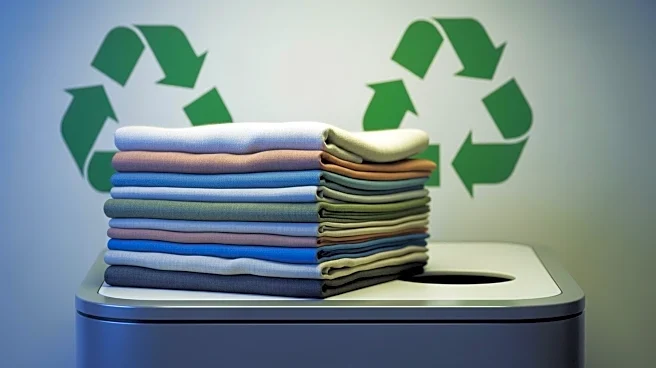What is the story about?
What's Happening?
The European Union has finalized new regulations requiring fashion brands to cover the costs associated with textile waste management. This move aims to address the growing issue of textile waste in the region. The regulations mandate the establishment of Extended Producer Responsibility (EPR) schemes within 30 months, making producers financially responsible for the collection, sorting, reuse, and recycling of textile products. Companies with fast fashion models, such as Shein and Temu, may face higher fees due to their rapid production cycles. The initiative comes as efforts to scale textile recycling infrastructure in Europe face challenges, with ReHubs planning to strategize for a circular textile sector.
Why It's Important?
The implementation of EPR schemes is significant as it shifts the financial burden of waste management to producers, encouraging more sustainable practices in the fashion industry. This regulation could lead to increased costs for companies relying on fast fashion models, potentially altering their business strategies. The move is expected to accelerate the development of circular business models, promoting sustainability and reducing environmental impact. It also highlights the EU's commitment to addressing textile waste, which is a growing concern globally.
What's Next?
Member states are expected to develop and implement EPR schemes, considering the environmental impact of fast fashion. The regulation may lead to increased costs for companies, prompting them to innovate and adopt more sustainable practices. The EU's focus on textile waste management could influence global standards and practices, encouraging other regions to adopt similar measures.















